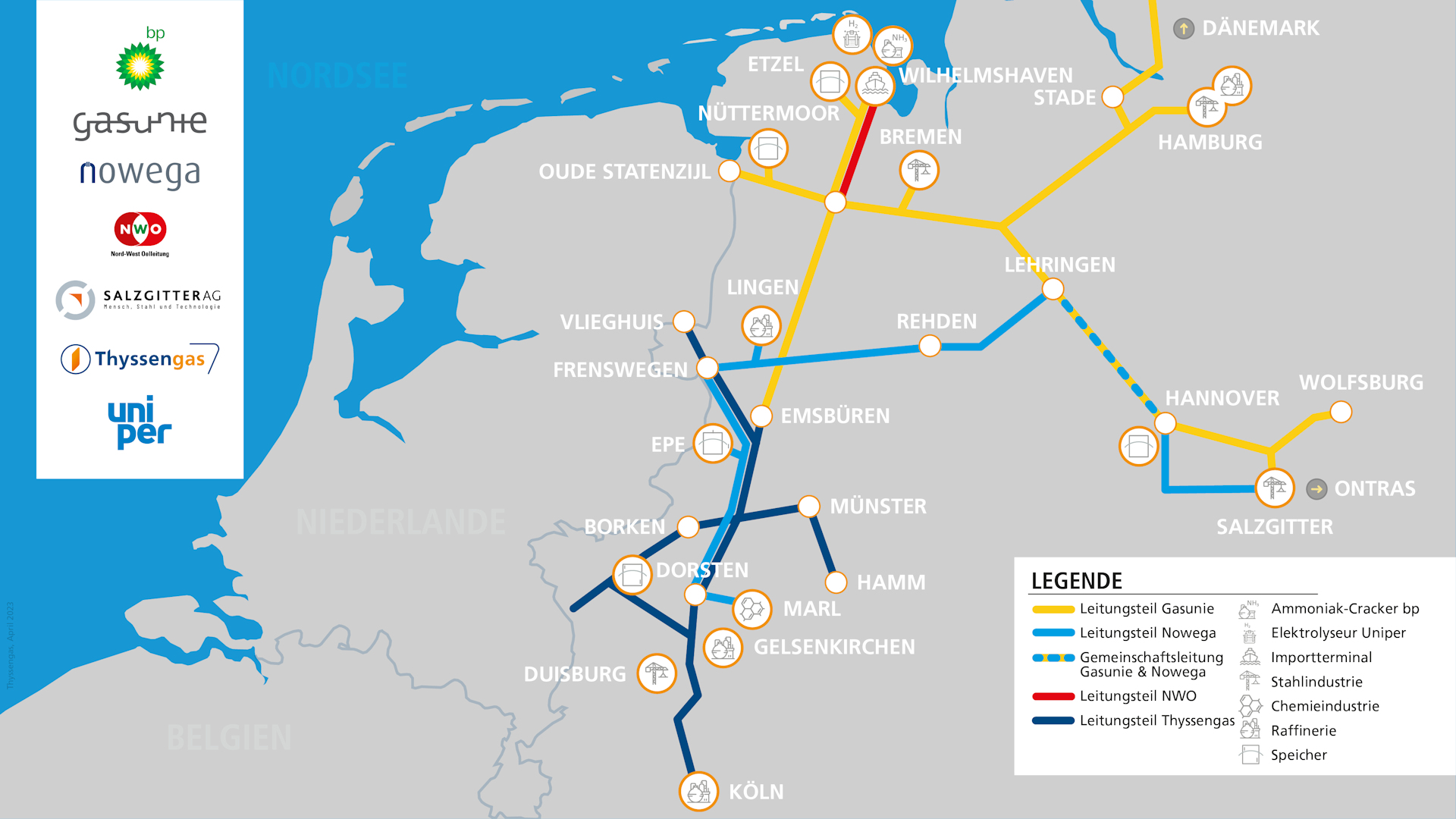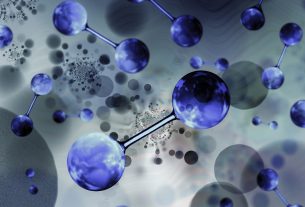Germany – Seven companies in Germany have joined forces to network their hydrogen projects in northwest Germany to create a sustainable, integrated hydrogen infrastructure.
The companies involved in the alliance are bp, Gasunie, Nowega, NWO, Salzgitter, Thyssengas, and Uniper. The aim of the alliance is to connect Wilhelmshaven as a future location for the import and production of hydrogen with the industrial consumption centers in North Rhine-Westphalia and Lower Saxony.
Ammonia terminal
The alliance aims to map and represent the entire H2 value chain, with roles distributed among the various companies involved. Bp and Uniper plan to build an ammonia import terminal at the Wilhelmshaven site, where the imported ammonia supplied will be broken down into hydrogen and nitrogen on-site by a thermo-chemical process. The green hydrogen bound in the ammonia will then be recovered. Ammonia as an H2 carrier allows for the efficient transport of low-carbon hydrogen by ship over longer distances for final use in Germany. Uniper also plans to build a large-scale electrolysis plant in Wilhelmshaven that will produce green hydrogen using offshore wind power from the North Sea.
Wilhelmshaven-Cologne corridor
Gasunie and Thyssengas plan to create an H2 north-south corridor between Wilhelmshaven and the Cologne chemical region. The approximately 400-kilometer-long transport link is to be put in place by 2028 by converting existing transport pipelines and building new ones. Both Gasunie and Thyssengas have submitted PCI (Projects of Common Interest) applications to the European Commission for their respective sub-sections. By way of a connection to the Hyperlink hydrogen network planned by Gasunie in the north and the sub-projects of the GET H2 hydrogen initiative for which Nowega and Thyssengas are responsible, the planned north-south corridor will make a significant contribution to the development of an integrated hydrogen network. This will reach both the bp refineries in the Emsland and Ruhr regions and many other potential H2 consumers along the route. In addition, Gasunie and Nowega are responsible for building the necessary west-east corridor to connect the partner and hydrogen consumer Salzgitter.
Pipelines conversion
The infrastructure operators Nowega and NWO are also contributing parts of their existing pipeline network to the alliance. The conversion of the existing pipelines by Nowega and NWO significantly reduces the need for new construction while enabling large-scale accessibility of additional feeders and outfeeders.
German hydrogen network
This alliance supports the German government’s ambitious goals of making Germany climate-neutral by 2045. The companies are participating in the alliance with their various hydrogen projects, with integrated project planning along the H2 value chain. The alliance will play a significant role in the development of an integrated hydrogen network in Germany, connecting industrial production and consumption centers across the country.
One potential challenge facing the alliance is the high initial investment cost required to build and upgrade the hydrogen infrastructure. However, the long-term benefits of using hydrogen as a clean energy source and reducing carbon emissions could outweigh the initial investment cost. Another challenge is the need for regulatory support and government incentives to encourage the adoption of hydrogen technology and infrastructure.




